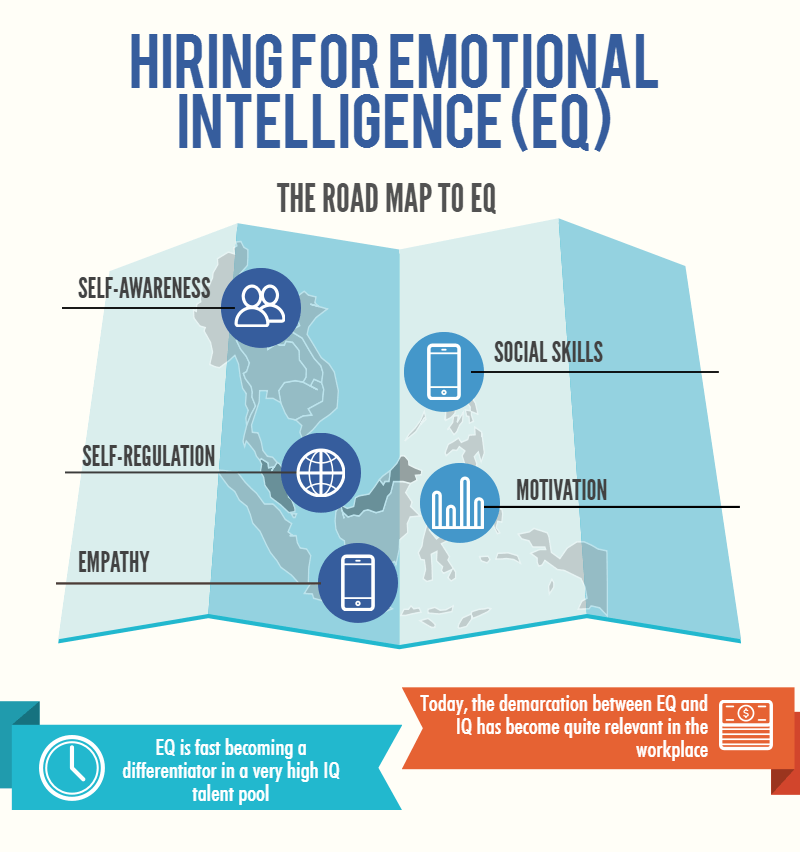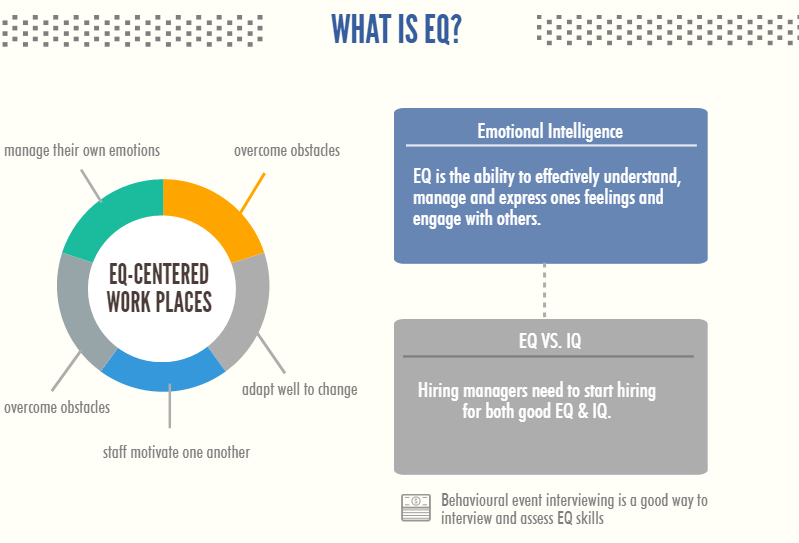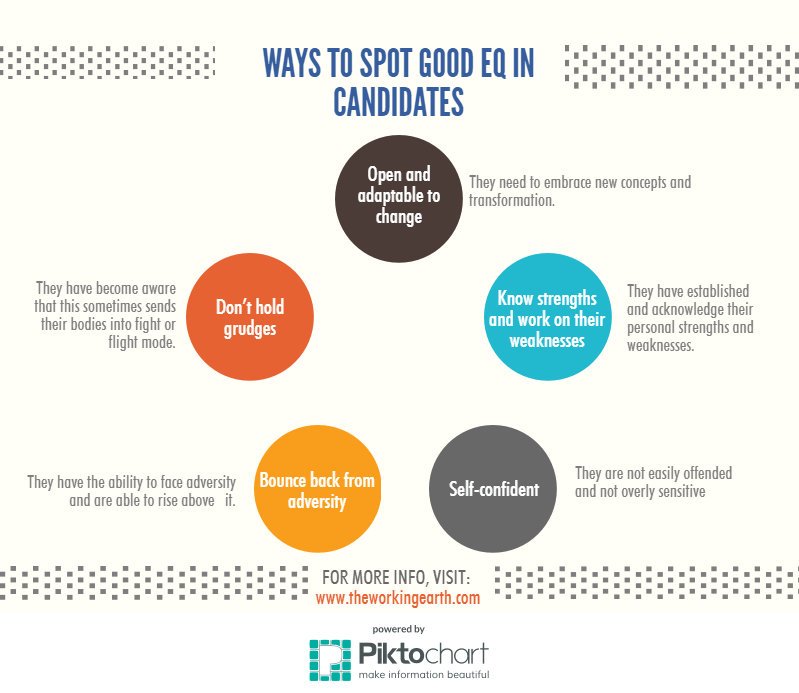Hiring for Emotional Intelligence [Infographic]

"There is no separation of mind and emotions; emotions, thinking, and learning are all linked." - Eric Jensen
Contrary to popular belief that intelligence quotient (IQ) is the main source of predicting success, emotional intelligence or emotional quotient (EQ) is fast becoming a differentiator in a very high IQ talent pool.
The concept of EQ was coldly received when first introduced to the masses, the thought of assessing ones success via an intangible means and not solely on an IQ test was unheard of. However, today, the demarcation between EQ and IQ has become quite relevant in the workplace. EQ is the ability to effectively understand, manage and express one's feelings and engage with others.

There are essentially five components that make up EQ:
- Social skills: ability to quickly build rapport with people
- Empathy: understanding and relating to the emotions of others
- Self-awareness: the ability to understand ones moods and emotions and how they will impact others
- Self-regulation: someone who thinks before they act and are responsive more than reactive
- Motivation: a strong drive to achieve
In order to create a workplace where staff motivate one another, adapt well to change, manage their own emotions, overcome obstacles and aspire to reaching collective goals, hiring managers need to move away from hiring solely on pedigree and start hiring for good EQ too. Behavioural event interviewing is a good way to interview and assess EQ skills. This interview technique informs the manager of how candidates would cope with challenging situations and indicates how emotionally self-aware the candidate is.

Here are a few ways to spot good EQ in candidates:
- Candidates with high EQ are aware that they need to be open and adaptable to change in order to be successful in this era. They need to embrace new concepts and transformation.
- When personal strengths and weaknesses have already been established and acknowledged by the individual and they know how to lean on their strengths and work on their weaknesses, then they will have a good EQ.
- Those with high EQ don't hold grudges as they have become aware that this sometimes sends their bodies into fight or flight mode. Letting go of that baggage improves productivity.
- They have the ability to bounce back from adversity. Like Michael Jordan said "I've missed 9000 shots in my career. I've lost almost 300 games. 26 times, I've been trusted to take the game winning shot and missed. I've failed over and over again in my life. And that is why I succeed." This is the attitude of someone who has faced adversity but has risen above and therefore displays a high level of EQ.
- They are self-confident and are therefore not easily offended and not overly sensitive. Candidates with good EQ are receptive to constructive criticism and use this to grow themselves
- They are socially aware and understand people and their reactions and how to manage these. Over a period of time these individuals become a good judge of character.
- These individuals understand their own emotions and because they can accurately identify them they are able to mask these emotions.
- Those that get over it and get on with it usually have a high EQ. They don't carry with them their mistakes from their past. As Zig Ziglar said "One cannot climb the ladder of success dressed in the costume of failure."
- Good self-control is a good indicator of high EQ. Being analytical and not impulsive displays good EQ and being composed rather than frazzled. A Japanese proverb says that "he who smiles rather than rages is always the stronger"
Unlike IQ which does not change significantly throughout one's lifetime, EQ can evolve and be developed if there is a desire within the individual to grow and learn. A large number of careers are derailed due to a low level of EQ, therefore hiring for EQ ensures that you have the correct people on your team.
Author: Wendy Kirstan, General Manager (The Working Earth)










